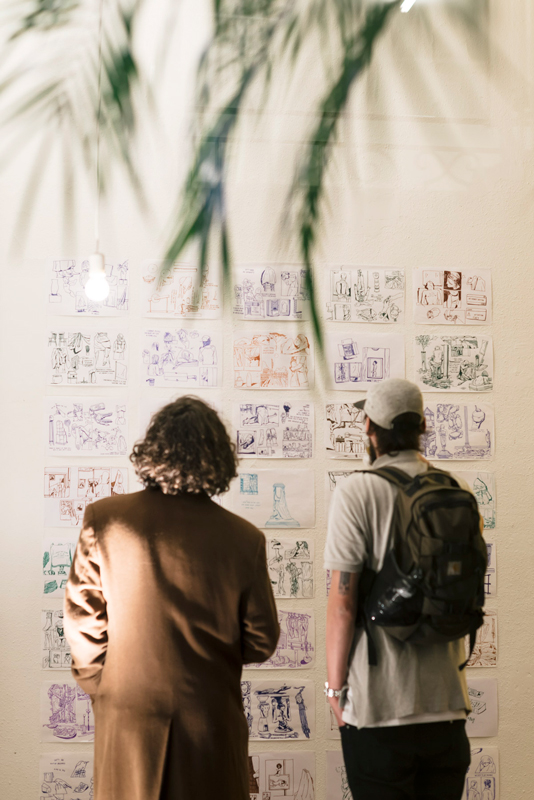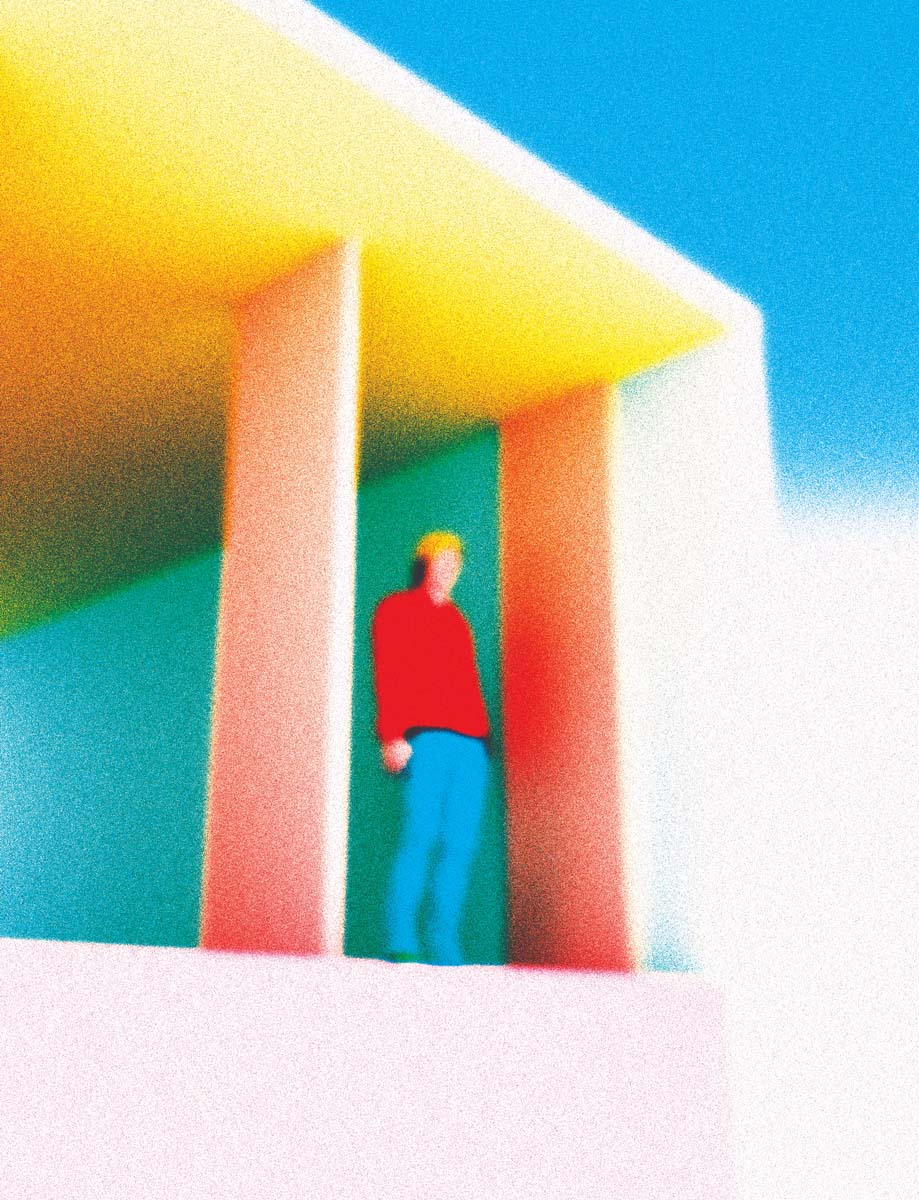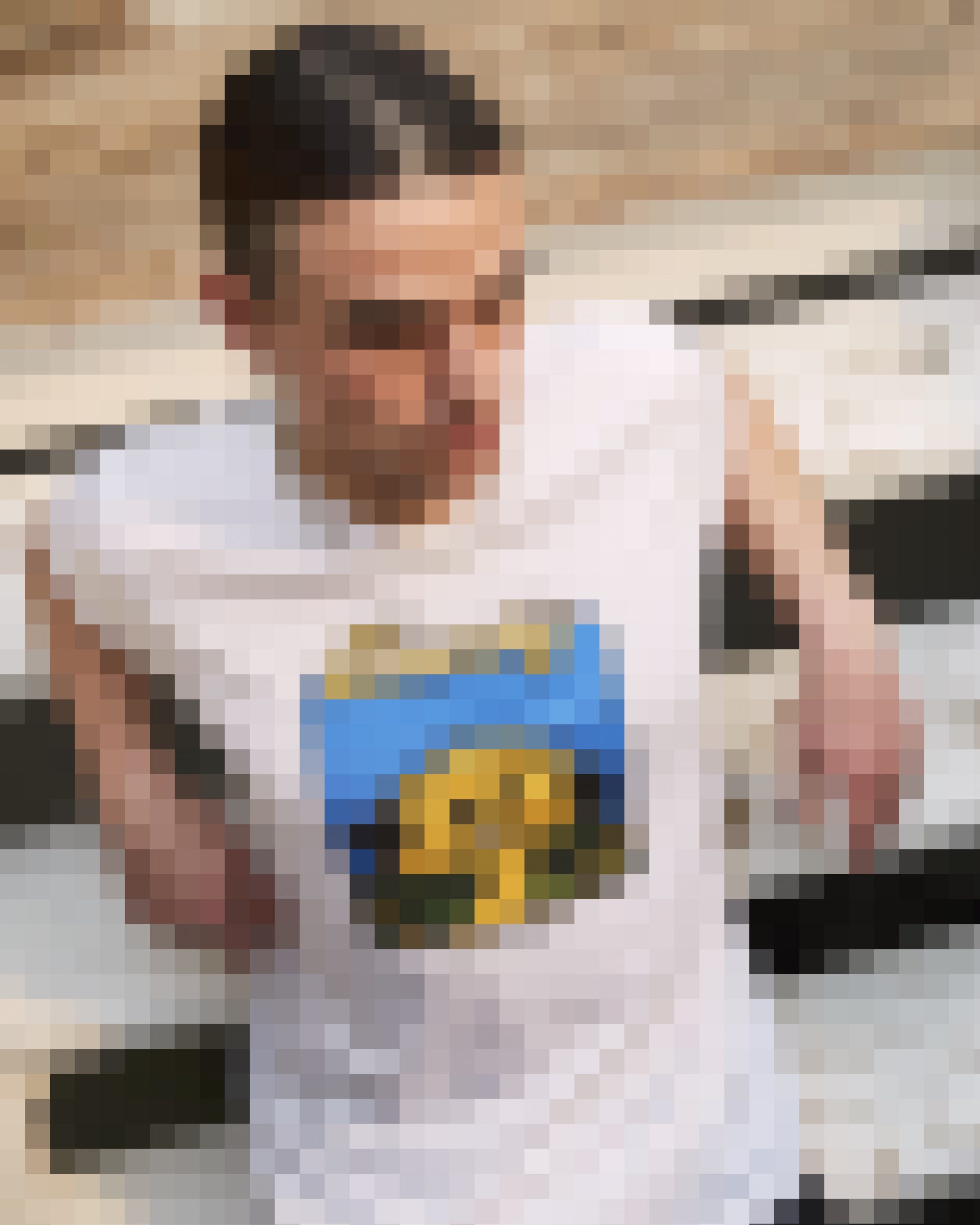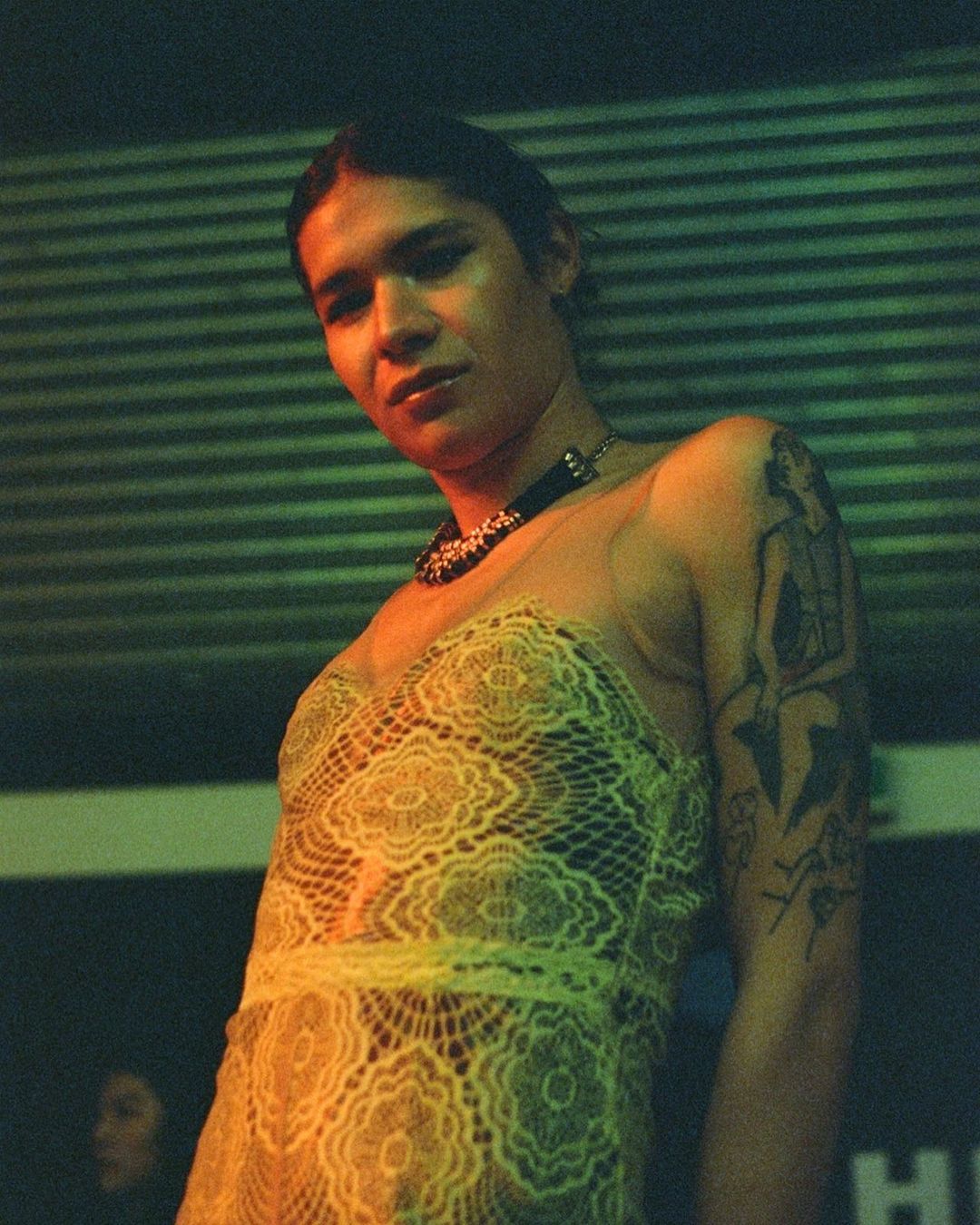What do you think the relationship is between mental health, working in the creative industries, and creativity more broadly?
This question makes me think about the old adage that a ‘true’ artist must suffer. I’m not sure if that’s true; I know a lot of great artists who don’t suffer that much. I do know from personal experience that it can be quite difficult and lonely sometimes to work as a self-employed creative. I try to be personal and honest in my work, so when certain illustrations or jobs get rejected it can easily feel like a rejection of me as a person. I think for me this would be the correlation between work and mental health, and I have to remind myself regularly that I am not my job, and my job is not me. But that’s not always so easy.
I try to be honest in my work
For this collection you worked with a lineup of artists from around the world, why did you want to take this global approach to perspectives on mental health?
This year’s Mental Health Day slogan is “Make mental health and well-being for all a global priority” so it made sense to have as diverse and broad a group of artists involved as possible. If you are struggling with these kinds of problems it’s always nice to recognise yourself in artists that are involved in this theme. I hope we managed to do so with this group of amazing artists.
How did you curate the lineup of artists? Did you select creatives you had a relationship with, or those you admired, or a mix of the two?
Definitely a mix. There are no people in this line-up I already knew personally, which is always nice to do. Everpress actually helped me out a lot with suggesting some amazing artists, and I had a few names in mind that felt like a great fit. In general I aimed for a nice and balanced line-up in terms of the work they make too: not only melancholic drawings like I tend to do, but some bold and colourful, some more graphic and some happy and positive. So there’s something for everyone hopefully.
Openness is the necessary starting point
In your own work, you often weave in candid statements like “Let’s celebrate me instead of the man I’m trying to be.” For you, what role does openness play in helping destigmatise mental health issues?
I think that openness is the necessary starting point, but it can be quite scary. For me personally it feels great to have my own work as an outlet for my feelings and thoughts. It’s a little easier because it’s a translation of some sort, so there is some camouflage there. But getting so many positive responses from people makes me feel like I’m not the only one struggling with these things. That really makes it easier for me to share it with my friends too.
Cultural tropes like “the strong silent type” can make it particularly difficult for men to access mental health provision. Personally speaking, what do you think the specific challenges are for men when it comes to mental health? And what can be done to change this?
A while ago I read the wonderful book, The Descent Of Man, by Grayson Perry. He really explains the way in which men suffer from this role that we play, the ‘real man’, and all the expectations that come with that role. Unfortunately, there is still so much pressure on men today to keep playing this stereotype, and I think openness is the answer here too. Men need to speak up, show their vulnerabilities and explain that it doesn’t help anyone to not show your feelings. Thankfully there are more and more people doing so, making it easier for others to do so too.
Men need to speak up
This collection helps raise funds for Crisis Textline. Can you talk a little about their work?
Yes! They are an amazing and really easy to reach organisation that offers help to anyone who needs somebody to talk to. You can text or WhatsApp them when you feel like you’re stuck in your head, you want some advice, or just want to get something off your chest. I love how accessible they are, it means you don’t have to feel like a patient or make it too big in your own head. You can just have a nice conversation with somebody and hopefully feel some relief after that.
Read More: Collaborating For A Cause With Conor Clinch






